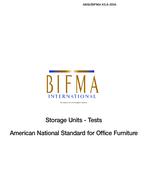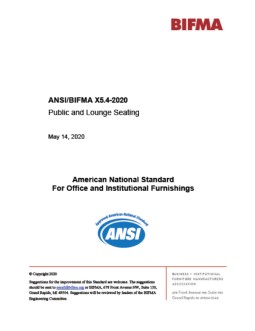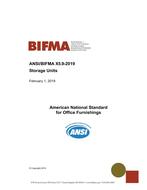Click here to purchase
The purpose of this voluntary Standard is to provide measurable market-based definitions ofprogressively more sustainable furniture by establishing performance criteria that addressenvironmental and social aspects throughout the supply chain.
The 2014 edition of the standard is the result of work that has been done by the e3 Furniture Sustainability Standard Joint Committee and its work groups coordinated by NSF International over the course of the last year in response to participant suggestions, stakeholder feedback, and industry recommendations. It provides additional guidance, incorporates interpretations and responses to questions from users, and enhances the educational value of the standard. Included are new credits, significant revisions to existing credits, refined baseline requirements, and an increase in the total number of points available from 91 to 100.
Major changes to the Materials section consist of realigning the Life Cycle Impact credits to be consistent with the ISO 14040 process and with BIFMA’s Product Category Rules. Changes were also made to recycled and bio-based content, recyclable materials, and additional details were provided to the Design for Recycling and Legacy Product credits.
The Energy and Atmosphere section contains one of the most notable changes in this new version since e3 was launched in 2008. The changes are centered on a better alignment with life cycle thinking and include the introduction of new credits for establishing energy and greenhouse gas boundaries, energy management systems, Scope 3 greenhouse gas emissions, and allocating energy and greenhouse gas impacts to specific products. In addition, internationally recognized greenhouse gas standards are incorporated.
The Human and Ecosystem section credits were restructured for better alignment; product, process and maintenance related credits are now under their own sub-section. Annex B was updated to reflect the current versions of the reference listings used in its development. There is added clarity regarding maintenance and operation chemicals, and considerations for hazardous waste credits to be usable outside the USA by acknowledging agencies other than EPA. Newly added chemicals to Annex B, based on changes to the reference lists, are identified in an additional annex that allows the user to quickly see these newly added chemicals without having to scour the complete Annex B list.
The Social Responsibility section was updated based upon a gap analysis of other international social standards. It has a new Prerequisite for Community Outreach and Engagement and an opportunity for 5 additional points. There is a heavier focus on supply chain activity targeted specifically toward international suppliers (e.g., code of conduct, risk assessments, and audits). In addition, a new credit that rewards safety performance was added.
Product Details
- Published:
- 2014
- ANSI:
- ANSI Approved
- Number of Pages:
- 105
- File Size:
- 1 file , 1.9 MB


